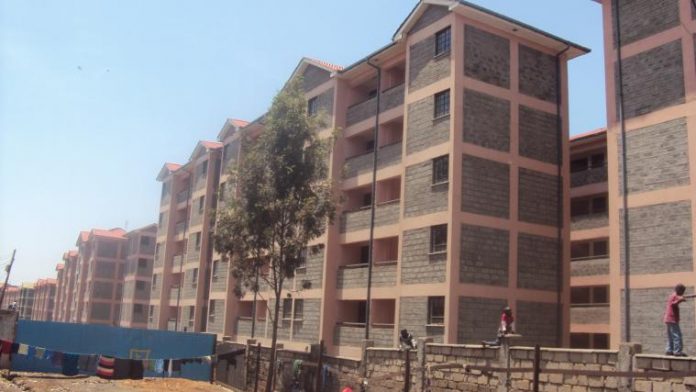As accommodation deficit has continued to increase at an alarming rate in Nigeria, state governors have been advised to partronise housing corporations in order to reduce the ugly trend.
According to the Chairman, Association of Housing Corporation of Nigeria (AHCN), Alhaji Mohammed Baba-Adamu, this singular effort will encourage affordable housing and reduce redundancy among state housing corporations.
In an interview with New Telegraph, Baba-Adamu, who claimed to have made several efforts to reach the Nigerian Governors’ Forum (NGF), lamented that government’s patronage of housing corporations was not as expected, adding that this was responsible for inactivity among the agencies.“Housing corporations in many states are almost dormant. It is like they are not even functional due to lack of patronage by the state governors,” he said.
In the past, virtually every state established housing corporations in the seventies to operate as property developers of the government.
The corporations funding came mainly from government allocations, while units were usually sold for cash.
Often, both low and middle-income earners were the target market for these housing developments.
Prospective buyers either paid cash or were allowed to make payments in installments during the period of construction as mortgage finance was not always available.
Worried by the current development, the AHCN boss said he had been doing everything possible to contact states to patronise housing corporations, noting that they have all it takes to develop houses for citizens.
He traced low or non-patronage of housing corporations by government to the era of democracy, where governors preferred to give contracts to party members at exorbitant cost instead of giving them to the agencies.
According to him, something that housing corporations would have done at half the price but probably because the agencies would not give them political patronage they expected, governors would award the contracts to party members.
Baba-Adamu said: “I am just using that as an example. I want to say that it is one of the challenges we are having.
“We just have our people sitting down, doing nothing and collecting salaries. And you are giving the jobs to other people and paying higher for it.”
To turn the tide, he disclosed that his board had been making efforts to see how it could get the attention of members of the Nigeria Governors’ Forum (NGF) to make presentations to them so that they could patronize housing corporations.
On high cost of housing units, the president of AHCN stated that what actually affected affordability was the issue of building materials, noting that a bag of cement that sold for N1,300 10 years ago now cost N2,600.
Meanwhile, housing experts have also called for collaboration between housing cooperatives and the corporations in addressing rental and low income housing shortage in Nigeria.
The experts pointed out that cooperatives remained a viable option to enhance housing availability and affordability as well as mobilizing resources and off-takers in tackling funding mechanism challenge.
They called on state governments to speed up the adoption of legal framework for judicial enforcement of mortgages and foreclosure legislations to boost investor confidence and streamline bureaucracies in Nigeria’s mortgage market.
The experts pointed out that lack of adoption of foreclosure laws to safeguard investors was one of the impediments to attraction of housing finance to the sector.
They identifed various challenges associated with site development and management of real estates and rental housing. These, they said, had resulted in loss of money through avenues such as proliferation of materials and inflation of prices of building materials.

To solve the problems, Baba-Adamu and the secretary of AHCN, Olusola Martins, enjoined all housing agencies to embrace modern technology and digital solution for development and management of real estates and rental housing.
They bemoaned dearth of skilled and unskilled labour in the housing sector, pressing to kick-start the retraining of housing personnel especially professionals that supervises projects on sites to mitigate incessant building collapse and drive production of quality housing in Nigeria.
They also bemoaned drop in commitment by government towards National Housing Fund contribution, imploring them to sustain it in order to make funds available for housing development.
The experts called FMBN to make loans process more applicant friendly by removing all bureaucratic hurdles and demonstrate a verifiable and transparent trend of benefits to NHF contributors nationwide in order to win back the confidence of states that have withdrawn.
Source: newtelegraphng





